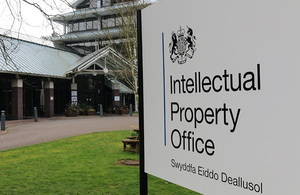Mr. Chair,
I have the honour of delivering this statement on behalf of 43 participating States: Albania, Andorra, Canada, the European Union and its Member States, Georgia, Iceland, Liechtenstein, Moldova, Montenegro, North Macedonia, Norway, San Marino, Switzerland, Türkiye, Ukraine, the United Kingdom and the United States of America.
The International Day in Support of Victims of Torture is an occasion to reaffirm our strong commitment to prevent and eradicate torture and other cruel, inhuman or degrading treatment or punishment. Today, we do so against the devastating backdrop of Russia’s brutal and unjustified war of aggression against Ukraine.
We are deeply alarmed by the various credible reports, including the report from the first mission under the OSCE’s Moscow Mechanism to Ukraine, about the alleged use of torture and other ill-treatment, including reports of rape and other forms of sexual violence, as well as enforced disappearances, against civilians and members of armed forces during Russia’s war of aggression against Ukraine. We strongly condemn these reported violations and abuses of human rights and violations of international humanitarian law and stand firm that those responsible must be held to account. We stand in solidarity with torture victims and survivors in Ukraine and around the world, as well as their families and communities affected.
Mr. Chair,
This year, we mark the 35th anniversary of the entry into force of the UN Convention Against Torture and Other Cruel, Inhuman or Degrading Treatment or Punishment. The Convention requires States parties to criminalize torture and to undertake to prevent other cruel, inhuman or degrading treatment or punishment. The Convention has been ratified by all OSCE participating States.
Torture and other cruel, inhuman or degrading treatment or punishment are violations of human rights and international humanitarian law as well as grave and abhorrent violations of human dignity. Our OSCE commitments and international obligations are abundantly clear: Any forms of torture and other cruel, inhuman or degrading treatment or punishment are unequivocally prohibited, under all circumstances, without exceptions. Regrettably – and despite these clear commitments and obligations – torture and other ill-treatment, as well as disappearances, continue to persist in the OSCE region, both in peacetime and in times of war. Credible reports of Russia’s actions in Ukraine constitute the most recent appalling example, but not the only one.
Mr. Chair,
More action is needed to end torture and other ill-treatment in our region. We echo the call of the Director of ODIHR in his statement dated 24 June 2022 to fight impunity for acts of torture and other ill-treatment. Holding perpetrators to account is critical for the victim’s redress, and it is crucial if we are to prevent torture and other ill-treatment from happening in the future. A holistic, victim-centred, and gender-sensitive approach should always be at the basis of these efforts, not least when investigating and documenting allegations of torture and other ill-treatment, including those involving sexual violence.
We are pleased that we were able to reaffirm and strengthen our shared commitments by adopting the 2020 Tirana Ministerial Council Decision on the Prevention and Eradication of Torture and other Cruel, Inhuman or Degrading Treatment or Punishment. Now it is high time to honour our commitments through effective implementation in good faith.
We call on all participating States to make good use of ODIHR’s assistance and its internationally recognized expertise in this field. In addition, we advocate for the participating States to actively consider as a matter of priority to sign and ratify the Optional Protocol to the UN Convention Against Torture (OPCAT).
Mr. Chair,
While we as participating States bear the primary responsibility to eradicate torture, we would like to express our strong support to the tireless and important work of human rights defenders and civil society organisations in all areas of anti-torture efforts. They should always have access to safe spaces enabling them to speak out and fight all forms of torture and other ill-treatment without risk of reprisal.
In closing, we jointly reaffirm our clear commitment to uphold the absolute prohibition of torture and to step up our efforts to end the use of torture and other ill-treatment in the OSCE region. We will ensure that the topic remains high on the OSCE agenda, and we will continue our joint efforts to end impunity for acts of torture.
Thank you, Mr. Chair.
